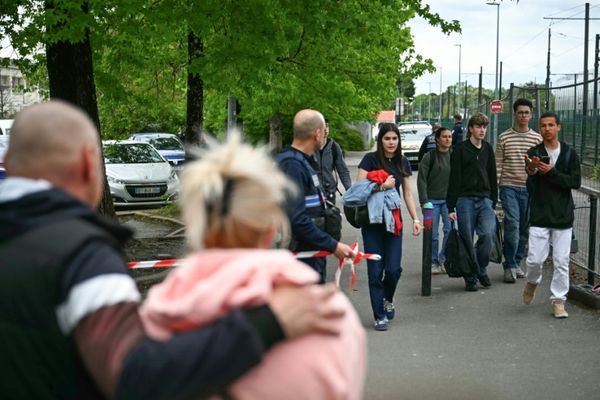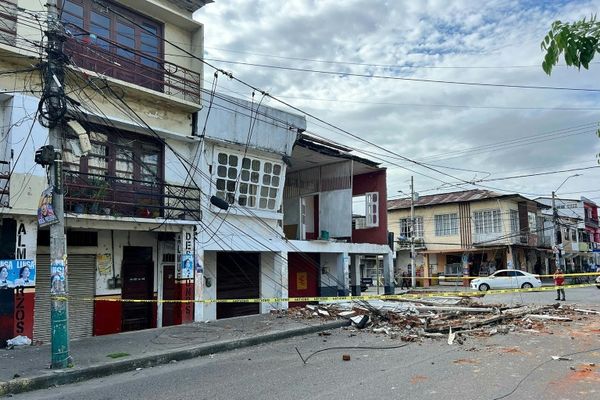The Solomon Islands Prime Minister has delivered a withering verbal assault on Australia, mocking the federal government's complaints about the secrecy surrounding the Pacific Island country's security pact with China
Manasseh Sogavare has also stoked fresh anger in Canberra by again alleging that Australian personnel refused to protect Chinese-built infrastructure during riots in Honiara last year — an allegation which Australian officials furiously deny.
The extraordinary remarks highlight how the relationship between Mr Sogavare and top politicians and officials in Canberra is starting to disintegrate, despite public declarations from both countries that bilateral ties have not been permanently damaged by the security pact.
Australia unsuccessfully pressed Mr Sogavare to ditch the agreement with China. And it has since criticised the lack of transparency around the negotiations.
Neither China nor Solomon Islands have yet agreed to make the final text they signed public.
But in a lengthy and often furious address to parliament, Mr Sogavare suggested Australia was being hypocritical because it kept its negotiations with the United States and the United Kingdom over the AUKUS pact top secret.
"I learnt of the AUKUS treaty in the media, Mr Speaker," he said in parliament.
"One would expect that as a member of the Pacific family, Solomon Islands and members of the Pacific should have been consulted to ensure this AUKUS treaty is transparent since it will affect the Pacific family by allowing nuclear submarines in Pacific waters."
He also mocked the language adopted by Prime Minister Scott Morrison and Foreign Minister Marise Payne, who have repeatedly stressed that Australia respects the sovereignty of Solomon Islands despite its concerns about the pact.
"Oh, but Mr Speaker, I realise that Australia is a sovereign country which can enter into any treaty it wants to, transparently or not," Mr Sogavare said.
"Which is exactly what they did with AUKUS."
The Prime Minister also delivered his strongest criticism yet of the security agreement his country has with Australia, while resuscitating deeply controversial claims that Australian personnel refused to protect Chinese-built infrastructure when restoring order in Honiara last year.
Australia quickly sent troops and police to the capital last year – at Mr Sogavare's request — when it was rocked by riots in the wake of political protests directed at the Prime Minister.
The ABC was in Honiara at the time.
The violence and rioting began to subside when it was announced that Australia was sending troops to Honiara, and the city was largely calm by the time the personnel arrived.
But Mr Sogavare repeated his allegation that Australian personnel refused to protect Chinese infrastructure and investments in Honiara when they were in the city, saying it showed "gaps" in the current arrangements with Australia.
Australian government sources have repeatedly denied that allegation and the ABC has seen no evidence substantiating it.
But Mr Sogavare said that denial from the Australian government was "disappointing".
"What is needed, Mr Speaker, is an acknowledgement of a serious blunder," he declared.
Mr Morrison responded by defending Australia's response to the riots and saying there were "other influences" on Mr Sogavare's perspective towards AUKUS.
When asked if Mr Sogavare was "parroting" Chinese rhetoric, he said there was "a remarkable similarity between those statements and those of the Chinese government".
Pacific 'not a backyard or territory of anyone'
Earlier, Chinese Vice Foreign Minister Xie Feng accused Australia of infringing on Solomon Islands' sovereignty.
Speaking via video link on Thursday at the launch of the China-Pacific Island Countries Climate Action Cooperation Centre, Mr Xie said the security agreement was open and transparent and did not target any third party.
"With what right can these countries tell China and Solomon Islands what to do?" he said, according to state press agency Xinhua.
"With what right can Australia draw a red line for Solomon Islands and China that are thousands of miles away from it?
"The Pacific is home to all countries of the region, not a backyard or territory of anyone; it should be a stage of international cooperation, not an arena for geopolitical games," he added.
According to China's foreign ministry, representatives from a number of Pacific nations including Kiribati, Niue, Samoa, Tonga, the Federated States of Micronesia, Solomon Islands, Kiribati, Fiji, Vanuatu and the Cook Islands attended the climate action centre's launch.







